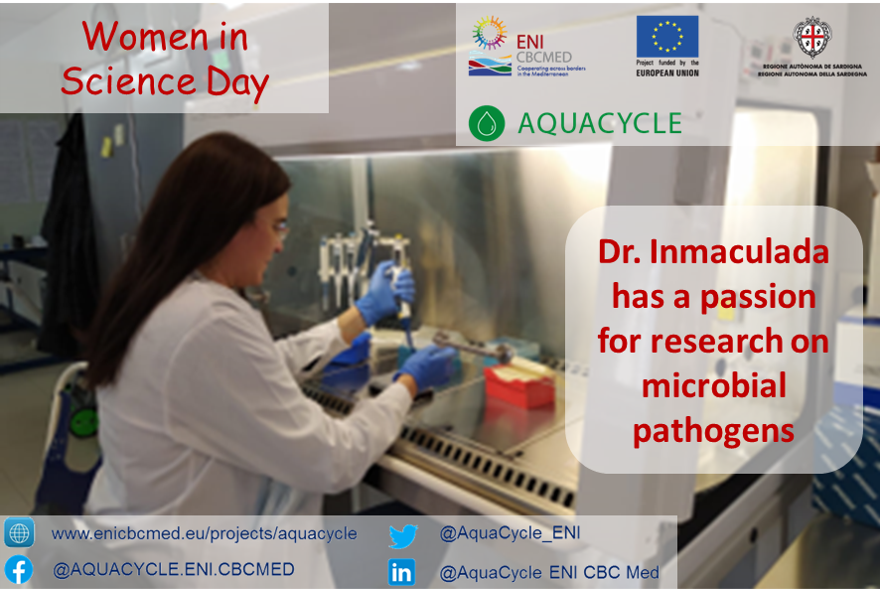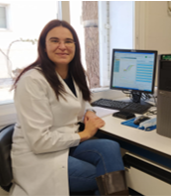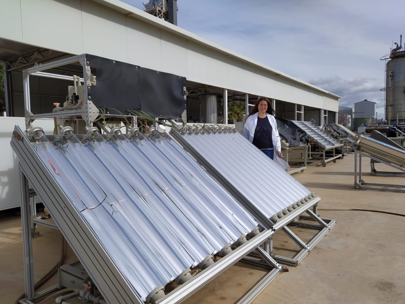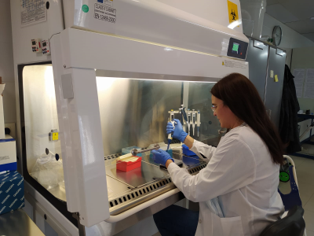AQUACYCLE تحتفل بالمرأة في اليوم العلمي

المحتوى متاح باللغة الإنجليزية
AQUACYCLE is aimed at the development, implementation and testing of an eco-innovative wastewater treatment process, APOC, which combines commercialized technologies (Anaerobic treatment and Constructed wetlands), with novel solar water treatment technologies that are based on Photocatalytic Oxidization.
Dr. María Inmaculada Polo-López is senior researcher within the solar research group (Plataforma Solar de Almería, CIEMAT-PSA) of the AQUACYCLE Partnership. Here, she explains about her expertise in this final step of the APOC treatment process which is concerned with solar photocatalytic disinfection of wastewater.

My interest in microbiology started during my high school student stage, continuing my studies with the objective of becoming a biologist. After that, I was able to obtain a doctoral scholarship at CIEMAT-PSA on water disinfection. From the first moment, I realized that as a researcher I had the opportunity to contribute with my work and my effort to the reduction or eventually solving the impact of contaminated water on human and environmental health. This realization, together with the fact that forming part of a wide research community with such an important practical implication, has been the main driving force during my currently thirteen years of research activity.
“Microbial pathogens are, from a general point of view, those specific microorganisms with the potential to generate an infection or disease. There are many different routes through which pathogens may reach a host, and among these, water is one of the most common vehicles for the spreading of pathogens, which under certain circumstances can be fatal for both humans and animals alike. It is therefore clear that research on the inactivation of different microbial pathogens in water is crucial to improve the safer access of water for a population, which is directly related with the improvement of humans well-being around the world, and from my personal perspective, especially important in low-income countries with high water scarcity”.
“Our capability to carry out these research activities relies on the highly equipped installations available at CIEMAT-PSA, which include solar pilot plants (picture below, left), as well as a highly equipped laboratory (right) for the microbial analysis of water samples”.


Earlier this month, Dr. Inmaculada was an invited speaker in the ODAKTR Seminar Series. A recording of her presentation is available on Zoom and on You Tube.
In this fascinating talk, entitled ‘Antibiotic Resistant Bacteria: Occurrence and removal from Urban Wastewater’, Dr. Inmaculada covers the different ways bacteria develop and acquire resistance to antibiotics, the occurrence of antibiotic-resistant bacteria (ARB), and antibiotic resistant genes (ARG) in domestic wastewater and the efficiency of conventional and non-conventional (including solar) treatment technologies for the simultaneous removal of ARB and ARG as well as antibiotics in a tertiary step of the overall treatment process.







